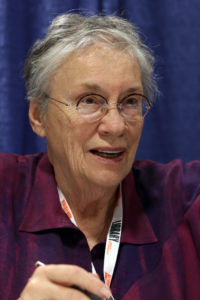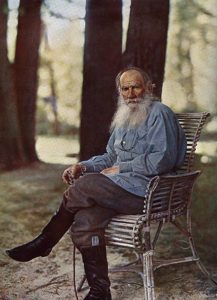
National Book Review (Wikipedia)
In Annie Proulx’s Pulitzer Prize winning book, “The Shipping News”, a minor character makes a statement that has for decades been lodged somewhere in the inner recesses of my mind. Cousin Nolan is in an institution, near the end of his days. Looking back, he experiences deep angst and regret at how little he has accomplished in the years bequeathed to him. “I always knowed I was meant for something big,” he laments, “but I didn’t know how to get started. I never had no luck.”
It was during my four years at SFU that I encountered these words. Young and restless, I was grappling with the issue of how I should invest my life. My understanding concerning this question was somewhat murky but I knew I didn’t want to conclude at the end of my time that I had chosen an inconsequential path, a path that descended into the remorse and despair experienced by the hapless Cousin Nolan. Even then I already knew that for me such an outcome would be a tragic waste of life.
When I turned 81 recently, I decided to mentally walk back along the path I had chosen so many years ago. I wondered what I would discover.
I began with a memory from my high school days. I was in grade 12 when Jake Toews, a pragmatic and respected teacher posed the question, “Why would you not commit suicide?” My response was, “I’m curious about what will happen tomorrow, actually the entire future.” I didn’t want my life to end with a sigh of regret.
During high school I worked with my Dad in summer, operating a large bulldozer, driving a dump truck, blowing stumps from the ground with dynamite, and more. There were times when I had opportunity to reflect, consider and evaluate while working. I began to understand I needed to choose between a variety of strategies and approaches, some of which might be alluring but deceptive. If my life was not to terminate with a sigh and a whimper, I would need to choose wisely.
Cousin Nolan may never have consciously struggled with questions that would determine the direction of his life. Possibly he didn’t heed the counsel of those who wanted him to prosper. He seemed to have drifted, much like the Monarch butterflies I admired as a child on sun drenched summer days. He had waited for life to open doors to achievement and meaning. In the end he seemed to conclude that life had not accepted its responsibility to him. He felt deceived.

Leo Tolstoy’s “How Much Land Does a Man Need?” depicts another equally unfruitful way of thinking. Pakhom, a character in this book, is told that for one thousand roubles he can acquire as much land as he is able to walk around in a day. Elated at the prospect of acquiring immense wealth, he starts walking early in the morning, eager to take complete advantage of this unanticipated offer. Striding briskly he sees a lake from which he’d be able to obtain water for cattle and crops. Tempted, he alters his course to encompass this magnificent body of water. Further along he notices a choice plot of land he knows will produce an abundant harvest of flax. Again he cannot resist and skirts around this section of rich soil. Late in the afternoon he realizes his acquisitive thinking has prompted him to be overly grasping.
Concerned at seeing the sun sinking toward the horizon and fearing he will lose all he has gained, Pakhom begins to run. This brings him to where he had set out in the morning, just in time. Unfortunately for him, his unrestrained, foolish reaching for more has taxed his body unmercifully. Exhausted, he collapses to the ground at the finish line and dies. He is buried there in a grave a mere six feet long. That, Tolstoy suggests, is all the land a man needs when he dies.
Pondering on the life trajectories of Cousin Nolan and Pakhom, I’m beginning to evaluate my own values and decisions over my many years. For Linda and me there have been challenges, adventures, opportunities, and certainly missteps. How have we dealt with our very generous allotment of time? Who and what has influenced us? Have we constructively participated in our community? What has been our response to people experiencing distress and heartache? In coming posts I propose to look back, in the hope of gaining understanding for the future.
